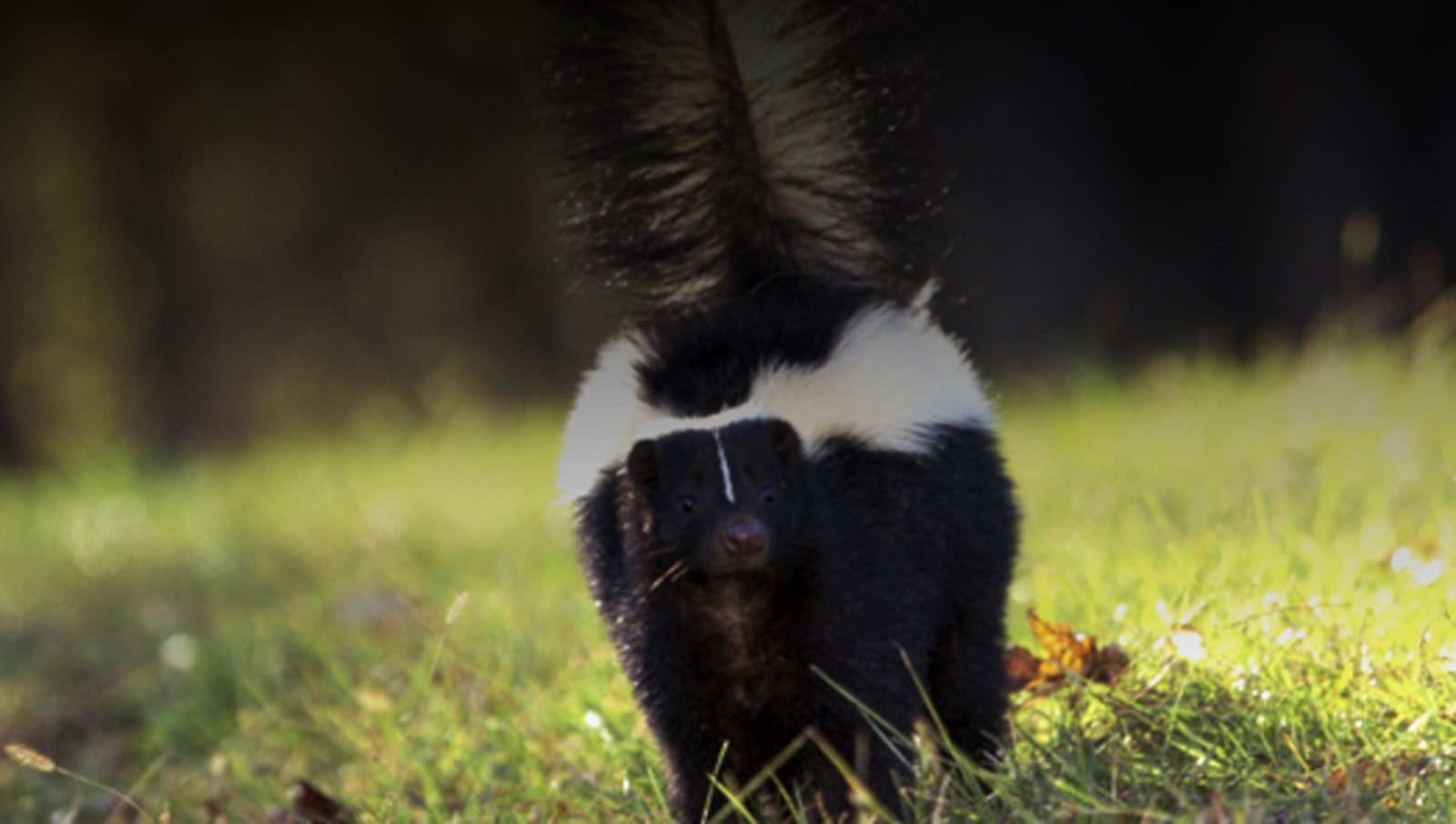Skunks are found all across Idaho. About the only places where you might not find them is in thick forests, very dry lands and high mountains.
Skunks are most active at night. During the day, they usually stay in dens which are typically old holes made by badgers or rabbits. They are quite willing to den near people, including under decks, in crawl spaces, and in sheds. In the Wood River Valley skunks enter dens in the fall and emerge in the spring when snow has mostly gone which varies by elevation but ranges from early April to mid-May.
Skunks are typically solitary, but you will find females with their young together. Baby skunks are called kits. Kits are born nearly naked, blind and deaf. They stay in the den until they are about six to seven weeks old. By this time, their scent is fully developed, so they can protect themselves. Skunks do not hibernate, but they do sleep through the snowiest and coldest parts of winter.
Skunks eat mostly insects, but they are opportunistic and will eat mice, eggs, berries and plants.
The characteristic nasty smell of a skunk comes from two glands in its back end. The glands are about the size of a grape and hold three teaspoons of their scent, which is enough for five to six sprays. It takes one week to make just two teaspoons of their scent fluid.
If You Encounter a Skunk
Skunks only use their spray as a last resort. They will typically try and get away first, then they give a warning. Skunks preferred method to tell you that you’re too close is to raise their tails, stomp their feet and click their teeth. If this doesn’t work, they aim their tails at the predator and bend their bodies in the shape of a “u”. That way they can see where they’re spraying. The skunk squeezes muscles around the glands. The spray shoots out of the skunk like water out of a bath toy. The spray can fly out ten to fifteen feet. So if you encounter a skunk give it a wide birth and keep your dog under control. Skunk spray not only smells bad, but also stings the eyes and nose of a predator. A direct hit in the eyes can make an animal blind, but only for a short time. Tears will wash the spray out of the eyes. If you get sprayed, toss your clothes in the trash can. Getting the smell out of clothing is hard. Wash your skin with a mixture of liquid dishwashing detergent, baking soda and hydrogen peroxide.
Avoiding Conflicts
The best way to deter skunks from your property is to make it unattractive to them. This means making food unavailable (keeping garbage cans in at night, cleaning up fruit off the ground) and blocking off spaces where they might try to den. Relocating animals isn’t very effective since another skunk will mostly likely move into the territory.
